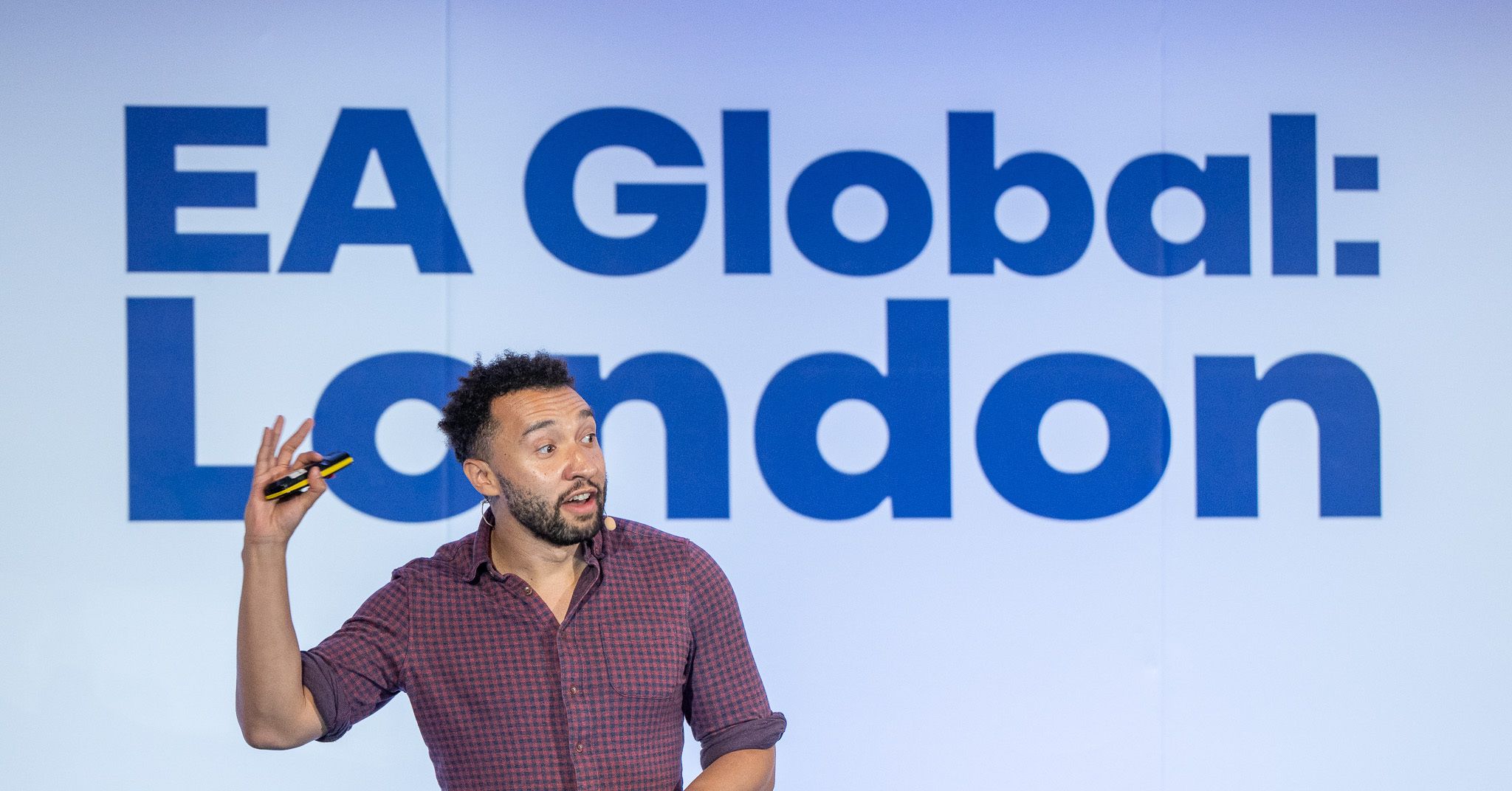This is a transcript of my opening talk at EA Global: London 2025. In my talk, I challenge the misconception that EA is populated by “cold, uncaring, spreadsheet-obsessed robots” and explain how EA principles serve as tools for putting compassion into practice, translating our feelings about the world's problems into effective action.
Key points:
* Most people involved in EA are here because of their feelings, not despite them. Many of us are driven by emotions like anger about neglected global health needs, sadness about animal suffering, or fear about AI risks. What distinguishes us as a community isn't that we don't feel; it's that we don't stop at feeling — we act. Two examples:
* When USAID cuts threatened critical health programs, GiveWell mobilized $24 million in emergency funding within weeks.
* People from the EA ecosystem spotted AI risks years ahead of the mainstream and pioneered funding for the field starting in 2015, helping transform AI safety from a fringe concern into a thriving research field.
* We don't make spreadsheets because we lack care. We make them because we care deeply. In the face of tremendous suffering, prioritization helps us take decisive, thoughtful action instead of freezing or leaving impact on the table.
* Surveys show that personal connections are the most common way that people first discover EA. When we share our own stories — explaining not just what we do but why it matters to us emotionally — we help others see that EA offers a concrete way to turn their compassion into meaningful impact.
You can also watch my full talk on YouTube.
----------------------------------------
One year ago, I stood on this stage as the new CEO of the Centre for Effective Altruism to talk about the journey effective altruism is on. Among other key messages, my talk made this point: if we want to get to where we want to go, we need to be better at telling our own stories rather than leaving that to critics and commentators. Since



The second video seems really interesting to me, as someone who's into moral philosophy. The first video personally falls into "it's bad on purpose to make you click" territory, though.
If you watch from when I suggest in the link, I think it's less bad than you make out
I skimmed from 37:00 to the end. It wasn't anything groundbreaking. There was
one incorrect claim ("AI safteyists encourage work at AGI companies"), I think her apparent moral framework that puts disproportionate weight on negative impacts on marginalised groups is not good, and overall she comes across as someone who has just begun thinking about AGI x-risk and so seems a bit naive on some issues. However, "bad on purpose to make you click" is very unfair.But also: she says that hyping AGI encourages races to build AGI. I think this is true! Large language models at today's level of capability - or even somewhat higher than this - are clearly not a "winner takes all" game; it's easy to switch to a different model that suits your needs better and I expect the most widely used systems to be the ones that work the best for what people want them to do. While it makes sense that companies will compete to bring better products to market faster, it would be unusual to call this activity an "arms race". Talking about arms races makes more sense if you expect that AI systems of the future will offer advantages much more decisive than typical "first mover" advantages, and this expectation is driven by somewhat speculative AGI discourse.
She also questions whether AI safetyists should be trusted to improve the circumstances of everyone vs their own (perhaps idiosyncratic) priorities. I think this is also a legitimate concern! MIRI were at some point apparently aiming to 1) build an AGI and 2) use this AGI to stop anyone else building an AGI (Section A, point 6). If they were successful, that would put them in a position of extraordinary power. Are they well qualified to do that? I'm doubtful (though I don't worry about it too much because I don't think they'll succeed)
"AI safetyists" absolutely do encourage work at AGI companies. To take one of many examples, 80,000 Hours are "AI safetyists", and their job board currently encourages work at OpenAI, Deepmind, and Anthropic, which are AGI companies.
(I haven't watched the video.)
Fair enough, she mentioned Yudkowsky before making this claim and I had him in mind when evaluating it (incidentally, I wouldn't mind picking a better name for the group of people who do a lot of advocacy about AI X-risk if you have any suggestions)